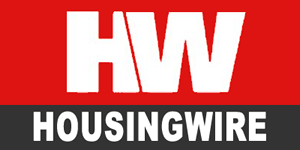How lenders can responsibly expand the credit box
Amid elevated mortgage rates, continued emphasis on regulatory oversight and a worsening 2023 market outlook, many lenders are reassessing their risk tolerance, which can lead to a tightening of their lending standards.
In a contracting market, how can lenders gain a competitive advantage? According to Kristin Broadley, Chief Innovation Officer at QC Ally, lenders should consider expanding the credit box instead of restricting it further.
“If you are proactive and certain about the risk and health of your manufacturing process, you can serve more clients, and that’s a competitive advantage in today’s market,” Broadley said.
The opportunity lies with clients that are eligible per GSE guidelines but exist a bit on the fringe of a lender’s current credit box – maybe their FICO score isn’t perfect or their DTI is a little higher than a lender is typically comfortable with. Many times, lenders will have overlays in place and be unable or unwilling to serve those clients due to concerns with quality that impacts eligibility, she said.
“If you are originating loans according to guidelines and you have certainty in your manufacturing process, it opens access to borrowers that maybe you would or could not have served in the past,” she said. “And right now, having competitive advantage in this market is achievable.”
How can lenders expand the credit box?
Anyone can expand the credit box by making changes to their policies and client base.
“You need to look at how you’re originating and what your risk tolerance is. Once you understand the risk that you’re willing to take on, it’s about putting the right controls and procedures in place,” Broadley said.
According to Faith Schwartz, founder and CEO of Housing Finance Strategies, “Through advancements in technology and leveraging source data, companies can and should operationalize certainty around risk management through a repeatable and predictable process to identify and advance efficiencies within their loan manufacturing processes.”
A lender with a certain and comfortable level of risk tolerance and a clear line of sight into the health of their manufacturing process can start making informed decisions about their origination policies and overlays.
“Putting in some of these programs requires a little work and thoughtfulness. It’s going to require time – you’re testing, getting results and creating actions and remediation plans where applicable, but going forward, you have visibility and line of sight [into your manufacturing process],” Broadley said. “Then you can start to make informed decisions about how you want to operate in this market, so you can contemplate expanding that product box and possibly grow share as the market is contracting.”
Risks and benefits
Expanding the credit box is not without its risks, however. It does involve lending to individuals who may have a very tight DTI ratio, who may have an imperfect credit history or whose income requires more documentation.
“There is no room for error when going to the edge of eligibility,” Broadley said. “If there is in fact a miscalculation and you have overqualified a client, then that loan may now have a material defect.”
But if a lender is certain about the health of their manufacturing process, they’ll feel more comfortable and confident making these changes.
And expanding the credit box can help create more opportunities for homeownership, affordable housing and first-time homebuyers.
“What you find in those instances is perhaps they don’t have the longest credit history, perhaps because they’re not as far along in their career, they have a little tighter DTI,” Broadley said. “They were eligible for a loan, but because of risk policies within an organization, maybe they weren’t offered a loan. Now, if you have certainty around the process, you’re not going to hesitate to offer that client a loan.”
How QC Ally helps
QC Ally can help lenders with their efforts to expand the credit box responsibly. The company offers a variety of technology-enabled services to ensure loan quality, including audits and pre-fund and post-fund reviews.
“We’re a big advocate for the power of the pre-fund review,” Broadley said. “It is real-time, in-process identification of opportunity, of risks before the loan even closes, creating certainty that your manufacturing process is working as designed.”
To learn more about working with QC Ally, visit https://www.qcally.com/.






